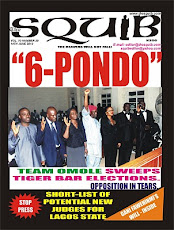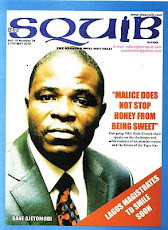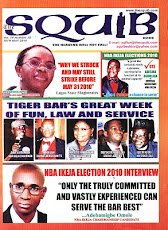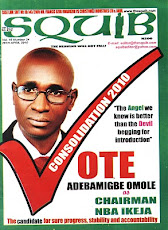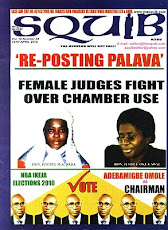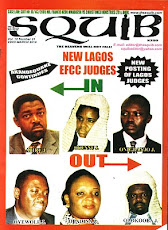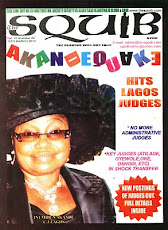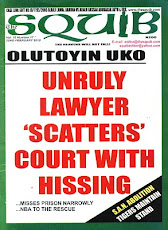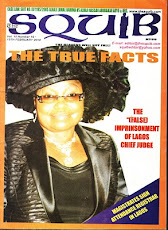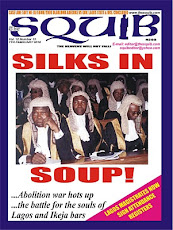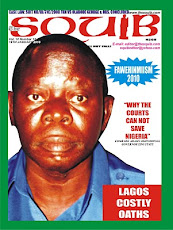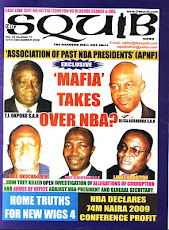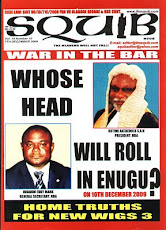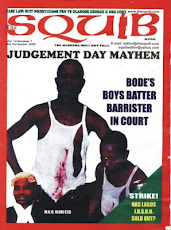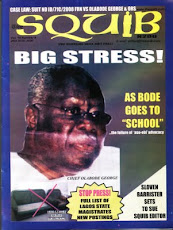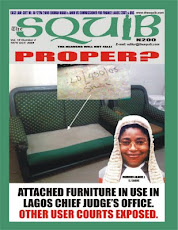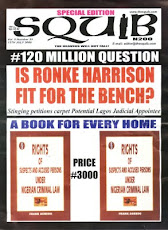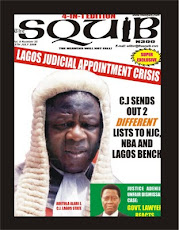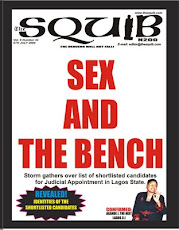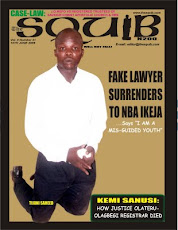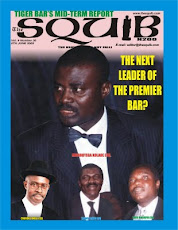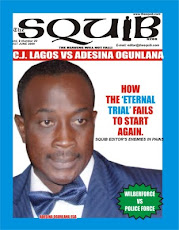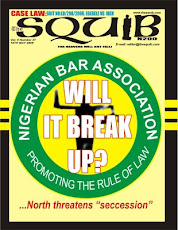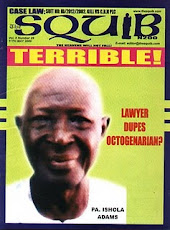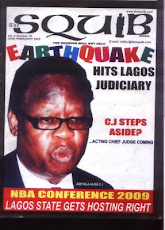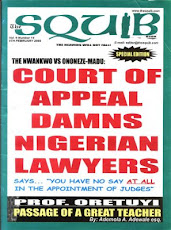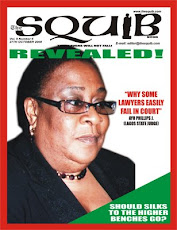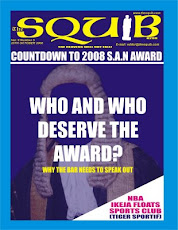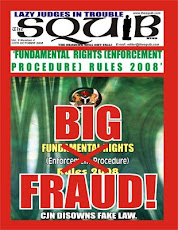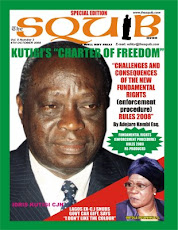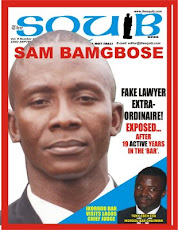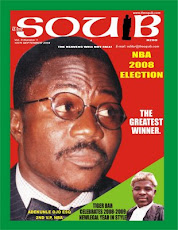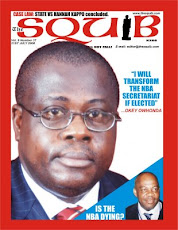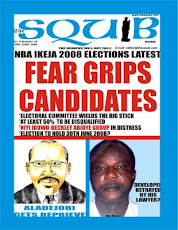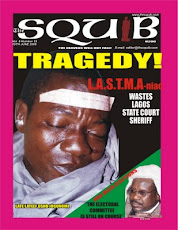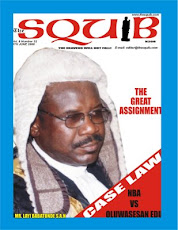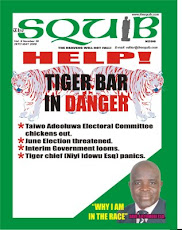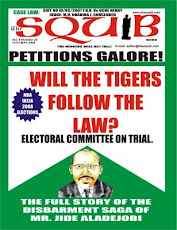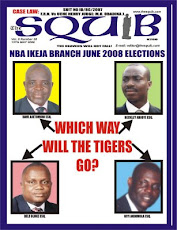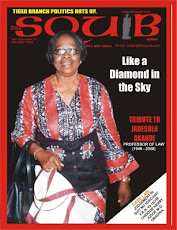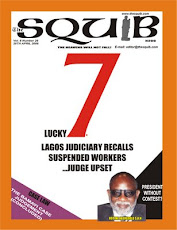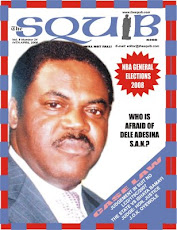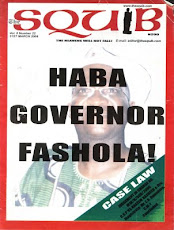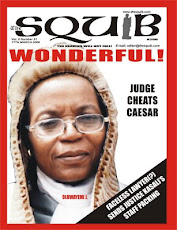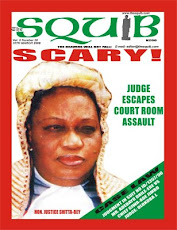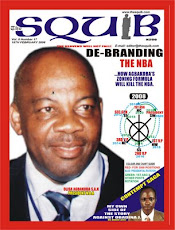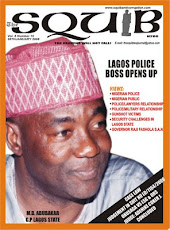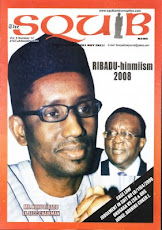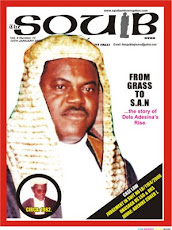
INTRODUCTION:
When on the 29th May 1999, a new constitution came into being, some Judicial opinion were that the Fundamental Rights (Enforcement Procedure) Rules which came into being on the 1st January 1980 and made pursuant to Section 42 subsection. 3 of the constitution of the Federal Republic of Nigeria by the then Chief Justice of Nigeria, the Hon. Justice Fatai Williams was dead. This position may have been reinforced by the belief of the absence of a saving clause in the 1999 Constitution. It was the then Chief Justice of Nigeria, the Hon. Justice Muhammed Uwais who drew attention to the provisions of Section 315[4[of the 1999 constitution. That notwithstanding, the need for a review of the rules for the effective administration of the procedure required for the enforcement of Fundamental Rights as guaranteed by chapter IV of the 1999 Constitution. It is this need that the Hon. Justice Kutigi has fined with the enactment of the 2008 Rules Pursuant to powers granted to him in that respect by Section 46(3) of the 1999 Constitution.
The 2008 Rules - A novelty.
Before a clause by clause preview of the 2008 Rules, it is important that we acclaim that the Rules are different from any other Rules that has ever been enacted for the administration of Justice in Nigeria. In the following respect
a. LANGUAGE
The language of the Rules is simple and shorn of all legal "jingoism". It is clear that it is targeted at the largely uneducated Nigerians whose rights are being trampled upon on a daily bases by the Police, Security Agencies and Government. Intact the simplicity of the language almost made this writer to doubt its genueity. The simplicity is a new but welcome development in legislative drafting.
Beautiful and commendable as the simplicity of language appears to be, one must however point out the carelessness of the draftsman in this piece of legislation. Order (9) (1) stands alone, and follows Order 1 [1] as there is no Order 8 precedent to it. Order 1 on Language actually dealt with interpretation and not Language. - This is because Interpretation is
An attempt to explain the reason for an event, a result, someone's actions etc.
While Language is
The system of communication by spoken words, which is used by the people of a particular community, country or area.
b. SAVINGS
While abrogating the old Rules the new Rule in its Order (9) (1)? Preserves the forms in its Appendices for the purposes pf the new Rules.
c. NOTARISATION
The Rules by Order 1 granted powers to legal practitioners (5 years post call, Attorneys-General, Senior Advocates of Nigeria in addition to the well established commissioner for Oaths. This will reduce the arrogance of commissioners for oaths and thus further enhance the implied urgency in every application for the enforcement of a Fundamental Right.
d. LEGAL REPRESENTATION
In its Order 1, the Rules defines Legal Representative to include "Legal representatives" include any person, whether legally qualified or not, acting for, assisting or representing a party in any suit govern by this rules or which could be so governed. Legal representative may be or include human right activists, advocates, or (interest) groups as well as any non- governmental organizations. The legal representatives may assist an applicant or respondent with preparing their application or defence, or with court appearance or representation.
The liberation of this definition/interpretation [as underlined] may have created a vocation for human rights campaigners as they are now legally recognized to represent applicants / victim even at the High Court. This provision, in a society that is plagued by poverty, may sound heart warning but may be defeated by two situations / circumstances:-
• In a predominantly illiterate society, this may create a new vocation of ill-literate "Legal Practitioner" who will reap off unsuspecting Applicants and
• The Legal Practitioner Act by its Section 2 prescribed the guidance for the entitlement to practice as a barrister and solicitor. Under what rule/law/practice/procedure has this innovation come?
Professional jealousy compelled this writer to initially hastily jump to the conclusion that the courts will throw out this provision by virtue of the constitutional provision which entitles a person to defend himself or by a Legal practitioner of his choice. A careful perusal of Section 36 of the constitution revealed the fallacy of this line of thought.
By Section 36(6)
Every person who is charged with a criminal offence shall be entitled to:
a. Be informed promptly in a language that he understands and in detail of the nature of the offence
b. be given adequate time and facilities for the preparation of his defence.
c. defend himself in person or by a legal practitioner of his own choice.
A clear perusal of this provision shows that it applies only to criminal litigation.
By Section 36(1) - (3) the Constitution provided safeguards and procedures for the "determination of the civil rights and obligation of her citizens". There is no requirement that citizens for that purpose may not be represented by others who are not legal practitioners.
I dare to submit, that many fake lawyers who are currently facing criminal charges may find a lee way in this provision of the constitution provided they have not appeared in criminal matters. Definitely the last has not been heard on this matter. There is a long list of decided cases by judges on this issue which will definitely be the subject of future discourse.
e. PUBLIC INTEREST
For the first time in Nigeria or it's Jurisprudence, our law or a subsidiary will recognize Public Interest. It infact enlarges the scope of public interest by recognizing the interest of "a segment of it" in promoting, not only human rights, but also the advancement of human rights law!!! Welcome on board more Human Rights Associations. For the first time also, the "Justicability clause" in the 1999 constitution may come under serious threat.
f. OVERRIDING DIRECTIVES
Flowing from (e) is the creation /recognition of a new "overriding Directives" Eleven in number, it covers such diverse areas as:-
a. proactively giving effect to the said directives
b. Recognition of Regional and International Tribunals such as
i. The African Court of Human and People's Rights.
ii. The European Court of Human Rights and
iii. The Inter - American Court of Human Rights.
It is respectively submitted, that by the wording of 3(8) of the Rule, it allows of any decision of ANY Court on Fundamental Rights. The use of the words "must respect" gives the impression of a binding nature. Like Public Policy, the unruly horse, Judges will have a field day giving effect to this provision.
c. The erstwhile position of the Court not being a Father Christmas also died with the old rule. By the provisions of 3(d)
the Court may raise issues suo motu , grant relief not sought, or make a case for the Applicant. Without being sought, it MUST CONSIDER his bail or release whether or not it is raised in the proceedings.
d. Must pursue enhanced access to Justices for all classes of diligent -the poor, illiterate, reinforced, valuable, incarcerated and unrepresented Of all the classes so enumerated the most interesting is the class unrepresented. How can the Court go about this? Will the Court move itself to probe and investigate cases of those in detention without representation even with the liberalization on representation? The practicality remains to be seen.
g. LOCUS STANDI
Generally defined as the "standing to sue" it has been the bane of many litigants. A legal design to keep away busy - bodies it requires a litigant to have sufficient interest (legal) in the subject of litigation. Prior to the commencement of this rule, it is the person whose fundamental rights has been. is being or likely to be violated that can institute an action for its enforcement. This position is dissemble from the provisions of section 46(1) of the 1999 constitution which provides
- Any person who alleges that any of the provision of this constitution has been, is being or likely to be contravened in any State IN RELATION TO HIM may apply to a High Court in that State for redress.
This position was upheld by Order 1 Rule2(c) of the extant rule. Infact it is the actual person whose rights have been breached that can bring an application (Alhaji Shugaba vs. Minister of Internal Affairs) (1981) 2 NCLR 459. Then. it is impossible to file an action in the name of any person other than the complainant - Asemota v Yusuf(1981) 1 BCLR 420.
It must however be conceded that the Supreme Court has always struggled to channel a different course from the restrictive approach to locus standi espoused in cases like Abraham Adesanya v The President (1981) 5 SC 113; Thomas vs. Olufosoye (1956) 1 NWLR (Pt 18) 669 and a land mark point was reached in the case of Gani Fawehinmi v Halilu Akilu (1987) 4 NWLR (Pt 67) 797.
A review of the previous position is necessary in order to understand the revolutionary position of the new rules. In order 2 Rule 2(f); the Court must encourage and welcome public interest litigation in the human rights filed and no human rights case may be dismissed or struck out for want of locus standi. in particular, human rights activists, advocate, or groups, as well as any non-governmental organization, may launch human rights suits on behalf of any potential applicant In human rights litigation. The applicant may include any of the following:-
i. Anyone acting in his own interest
ii. Anyone one acting on behalf of another person
iii. Anyone acting as a member of or in the interest of a group or class of persons.
iv. Anyone acting in the public interest.
v. Association acting in the interest of its members or other individuals or groups.
With these provisions, class suits has been introduced in Nigeria. Companies involved in services that may affect the lives of members of society must be extra-careful. Brilliant Advocates may cleverly linked such issues with infringement of Fundamental Rights and the present Federal Government initiative against pfizer over the Kano deaths may have unwillingly opened a new Vista in Tortious liability litigation.
Another positive aspect of this provision is the fact that warring Communities in the Niger Delta may find in it the opportunity to leave the war field for the court rooms as the door to the court room has not only been permanently opened but widened. As the Yorubas will say. O gba ole o gba ole . Time will however tell whether his provision will not offend the constitutional provision that insists that - Any person who alleges that any of the provision of this constitution has been, is being or likely to be contravened in any State IN RELATION TO HIM may apply to a High Court in that State for redress.
h. TECHNICALITIES
The draftsman's abhorrence of technalities came to the fore in sub rule 3h as the rules deliberately outlawed
- Procedural formulae
- Arid legalism
As a means of hampering, hindering, impeding, inhibiting , obstructing or stalling ( I hope Dr Kole Abayomi is not reading this) human rights enforcement which is now a vehicle for the advancement of Nigeria Democracy, good governance, human rights civilization and realization.
i. PRECEDENCE
A new class of priority was also created as Human Rights Suits MUST TAKE PROCEDDENCE AND PRIORITY OVER ALL other businesses of the court including cases in which ATTORNEY - GENERAL or SAN may appear.
j. FEES
Access to Justice will be incomplete where the fees are exorbitant. The Rules, without any scale, required that it must be as low as practicable. This was the sore area in the review of files fees by the Tinubu Administration with the various bars in Lagos State. A situation where it is cheaper to bribe the Police than to approach the court is definitely not right or helpful to the enforcement of fundamental rights
k. COMMENCEMENT
The new rules also took away the discretion of the Courts in determing whether an action falls within chapter IV OF THE Constitution upon commencement as the requirement for leave is no longer mandatory.
The inelegant manner of the draftsman by incorporating the forms into the rules may however make this a debatable position. This is because the form continually refers to leave of court.
In form 1 - notice of Motion for an Order enforcing a fundamental Right (Order 2 Rule 1(1) it says ......................... Pursuant to the leave of the court given on the .................. day of................ does this mistake? Is repeated in form 2. Talking about inelegance, Form 2 did not take into consideration provisions of Order 2 Rule 10
I. ANCILLIARY OR PRINCIPAL
By virtue of Order 2(3) (b), it would appear that legislative intervention via the new rules has also finally sounded the death knell of Tukor V Government of . Gongola State [1989] 4 NWLR [PT 117] 517. In that case, the Supreme Court upheld the position that for an application to come under chapter IV of the Constitution the breach must be principal and not ancillary to the main claim. It thus held that the deposition of the Applicant was the main claim and the absence of fair hearing in the process leading to the deposition is merely ancillary.
Order 2(3) (b) provided that the overriding directive shall be for the purpose of advancing but never for the purpose of restricting the applicants rights and freedoms.
And for the avoidance of doubt reiterated the applicability of international bills of rights cited to it, brought to its attention or of which it is aware and then listed such bills to include:
i. The African Chapter on Human and peoples' Rights and other instructions (including protocols) in the African regional human rights system.
ii. The American Convention on Human Rights and other instructions (include protocols) in the inter - American Regional Human Rights System.
iii. The European Convention on Human Rights and other instruments (include protocols) in the European Regional Human Rights system, and
iv. The Universal Declaration of Human Rights and other instruments (Include protocols) in the United Nations human rights System.
PROOF OF SERVICE
The rigidity attached to proof of service has been highly relaxed by virtue of Order 2(9). This is a serious improvement on the previous Order2(4) where it was provided
- An affidavit giving the names and address of, and the place and date of service on, all persons who have been served with the motion or summons must be filed before the motion or summons is listed for hearing, and if any person who ought to have been served under paragraph 3 has not been served,, the affidavit must state that fact and the reason why service has not been effected. And the said shall be before the Court or judge on the hearing of the motion or summons as all the court requires now by Order 2[6] is
“Proof of service on any respondent shall not be required where it is evident to the court, by attendance of that party or his representatives, or otherwise howsoever, that the party has been served . The interpretation of the underlined segment is bound to be interesting.
n. DEFENCE
For the first time a detailed procedure for defence is enshrined in the FREP Rules, putting its proactive inclination into good use. This law proceeded, in this area, on the assumption that the respondents) really has a case to answer and then proceeded to make clear provision, for apology and compensation as envisaged by the Constitution. It is important that sub rule 3 is set out in order to appreciate the beauty of the provision
a. The offer of compensation may be in general terms or may specify the amount of compensation offered and the payment schedule, and the tender of apology may be in general terms or may specify the language of the apology, the medium in which it is to be published and the publication deadline.
b. Where the offer of compensation is in general terms, the court must at the hearing order the amount of compensation and the payment schedule.
c. Where the tender of apology is in general terms, the court must at the hearing direct the language of the apology, the medium in which it is to be published and in the publication deadline.
d. Where the offer of compensation or tender of apology is in specify terms, it will be subject to approval by the Court or Judge who may vary the offered compensation or tender apology after taking into account any contributions, submissions or proposals by the applicant or his legal representatives.
o. STAY OF PROCEEDINGS
It appears that the interpretation of whether a stay will exist on all actions or matters relating to or connected with the applicants suit is now determinable upon whether the Respondent admits or intend to admit substantially the whole of the Applicant's case See 3[4] unless the Judge specifically orders.
p. WRITTEN BRIEF
Not surprisingly, the new rules have followed the recent trend of filing and serving briefs of argument to help speed up the proceedings.
Found in Order 4 and titled Rocket Docket and Briefs of Argument, it contains detailed provision on written briefs. Out of tandem with it's heading, the section contains only provisions for written briefs and none on dockets which is interpreted as a list of legal cases that will take place in a particular court and is obviously a reference to a court list.
q. APPLICATION TO QUASH PROCEEDINGS
The erstwhile Order 3 is the new Order 5 and save for minor amendments is substantially the same, this may stem from the fact that proceedings rarely proceed under this Order as the provisions for judicial review has adequately covered this area.
r. APPLICATION FOR PRODUCTION AND RELEASES OF PERSON RESTRAINED
The first improvement in this area is in the title. The previous rule envisages an application for production and /or release while the new rule envisages an application for production AND release.
Secondly, the application may be exparte or on notice. Where on notice the occurrence of any of the following will ripen the application for hearing
a. where the application is served
b. where the potential respondent or a concerned party is in court (presumably not the Applicant)
The Judge may release forthwith or grant bail or may direct the applicant to file a human rights suit. [One initially thought that every application filed under this rule is a human rights suit]
Thirdly the strict requirement of service is again waived under this provision as the Order may be left with any person working with that officer, superintendent, authority or person. - Sec.(6)
Conclusion
In view of the brevity of time and space, it can be said that the new rules is a substantial improvement on the old rules as it seems to have further simplified the procedure wherein the citizenry can indeed challenge the enormous and coercive powers of the state. Granted that the former rules are compact, direct and detailed in legal material particular, a feature which sadly is missing from the new rules, yet the revolutionary provisions will, in the next few months create such a stir in fundamental rights litigation. A lot will depend on the Judges before whom Advocates will begin an exciting foray into the new rules. This, I dare say will dampen many an advocate as the judicial activism, envisaged by the new rules, may be lacking as our Judges may not be willing to take the 'risks' encouraged by the new rules and 'face the establishment'.
The role of the Nigeria Police, the necessary re-education of many of our security agencies, and possibly a new regime of compensation collection, may be required to give effect to some of the laudable provisions.
All in all, with respect, the incumbent Chief Justice of Nigeria, incidentally a Northerner has blazed a new trail of empowering democracy through the instrumentally of the law.. How far the disciples will follow suit is just a matter of time.
 Are you one of those legal practitioners who believe that anything goes in the court of law and think that correctness of form, presentation and appearance are unimportant in the conduct of matters?
Are you one of those legal practitioners who believe that anything goes in the court of law and think that correctness of form, presentation and appearance are unimportant in the conduct of matters?
































































